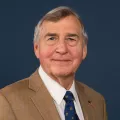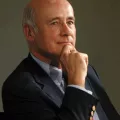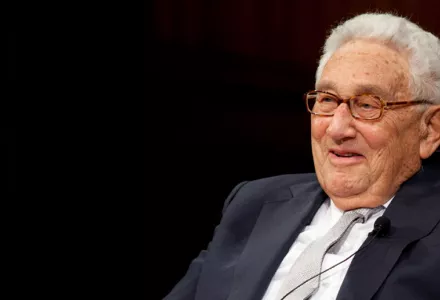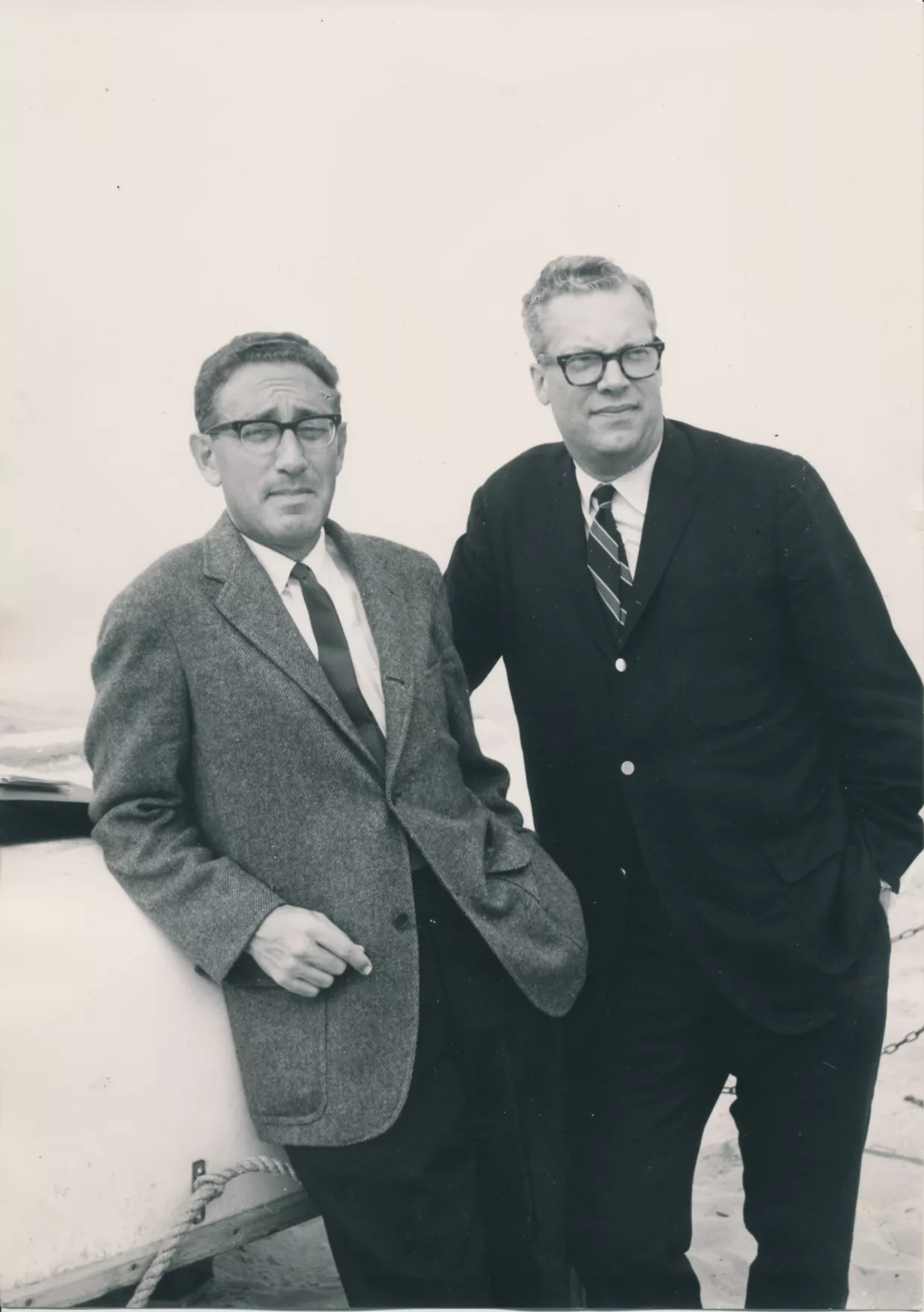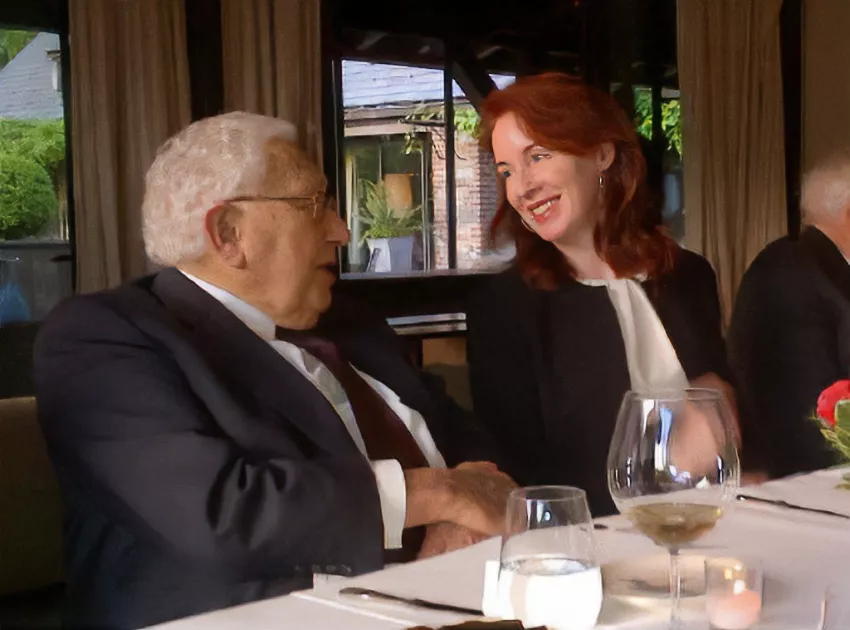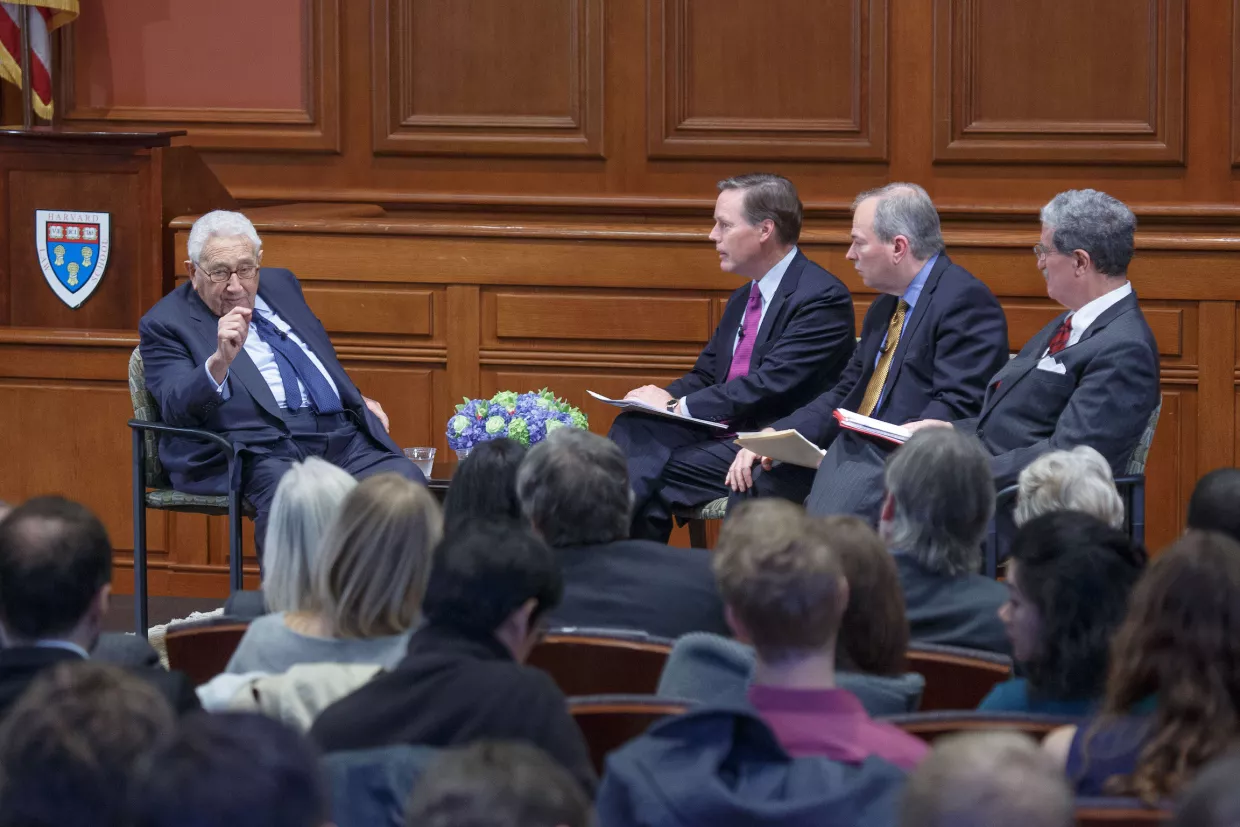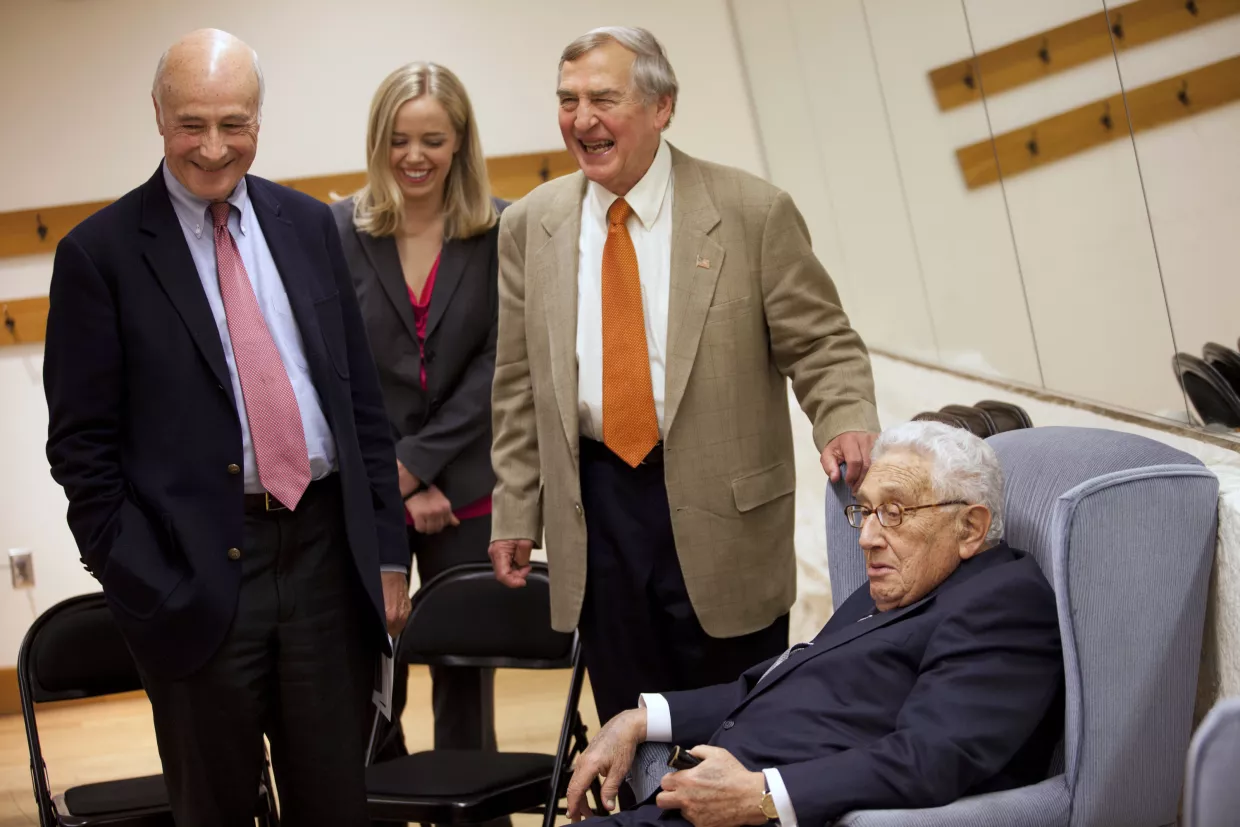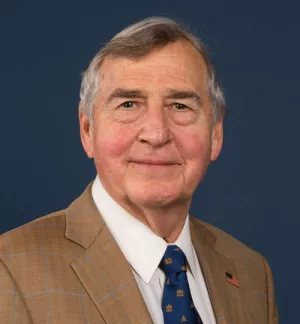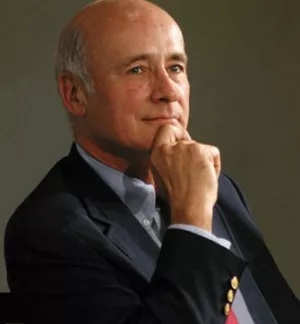Henry Kissinger – longtime scholar and diplomat – died on Wednesday, November 29. Several Belfer Center foreign policy and security experts share their thoughts on the impact Kissinger has had on the U.S., the world, and on themselves.
GRAHAM ALLISON, Douglas Dillon Professor of Government
“Henry Kissinger was America’s greatest living statesman, Harvard’s most accomplished living graduate, and the model practitioner of statecraft as Applied History. For me personally, he was the most generous and tolerant continuing education professor for a student who first enrolled in his legendary course at Harvard 58 years ago. Over the last several years, I’ve had the good fortune to Zoom with him every couple of weeks and never left a session without having been further enlightened.
Many commentators have celebrated—and criticized—Kissinger as a master practitioner of realpolitik, which of course he was. But for Henry, the much more important lesson he attempted to teach successive generations of those seeking to follow in his footsteps was the moral idealism of realism. For him, realism was not just about raw politics advancing the interest of a single state. The larger purpose was the construction of a viable order to prevent catastrophic war. That was the focus of his first book, A World Restored. That was his aspiration in finding a path to victory over the Soviet Union without hot war. That was his aspiration in searching for ways in which the U.S. and China can compete peacefully while coexisting.
As we mourn his passing, we can fortunately be inspired by the lessons he taught us and the writings he’s left for us from which we can continue to learn.”
FREDRIK LOGEVALL, Laurence D. Belfer Professor of International Affairs and Professor of History
“It’s a mixed legacy in policy terms. On the one hand, Kissinger understood the vital importance of negotiating with adversaries, something that U.S. policymakers historically have often been reluctant to acknowledge, much less undertake. The result was notable achievements, above all détente with Soviet Union and the opening to China. As well, his shuttle diplomacy after the 1973 Yom-Kippur War yielded real and lasting results. On the other side of the ledger, Kissinger’s absolute emphasis on great-power politics and tendency to see smaller countries as mere pawns led him to espouse policies with often disastrous consequences. Here I would point as an example to the massive carpet-bombing campaign in Cambodia, launched in early 1969 in the forlorn hope of eradicating enemy sanctuaries and sending a message to Hanoi and Moscow of America’s unyielding resoluteness. The bombing was kept secret from the American press and public, but not from the Cambodians who were on the receiving end.”


